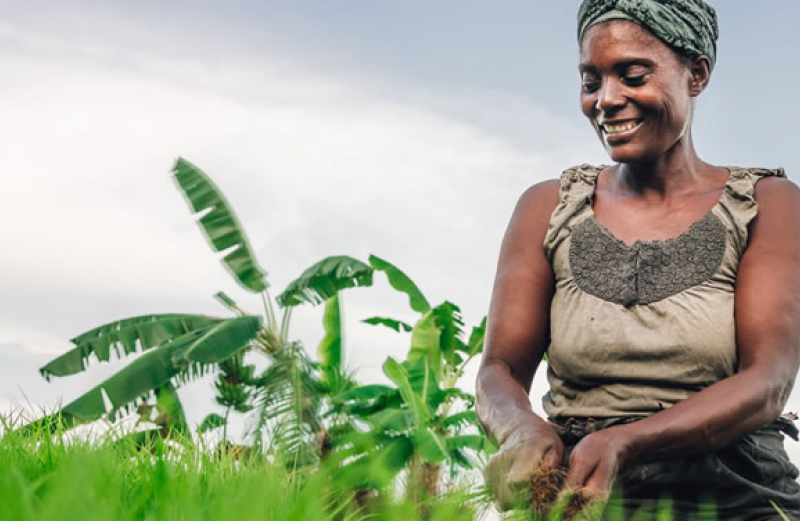Update on the Gender Climate Change and Agriculture Support Programme: Focus on Malawi

The Gender Climate Change and Agriculture Support Programme (GCCASP) of the AUDA-NEPAD was designed to facilitate the implementation of regional and country level interventions to empower rural women and in particular smallholder women farmers to enhance their resilience so that they can better cope with the potential adverse impacts of climate change and enhance women’s economic empowerment and participation in the agriculture sector. The programme is being implemented in the five participating countries of Cameroon, Ethiopia, Malawi, Niger and Rwanda.
Through Norad’s support, the GCCASP has undergone various phases of planning and implementation. GCCASP implementation is categorised into four main intervention areas which essentially constitute separate, but interrelated, sub-programmes namely:
(i) Closing policy and institutional gaps
(ii) Capacity building of women smallholder farmers
(iii) Creation and strengthening of women platforms and
(iv) Investments in up-scaling of successful and innovative practices.
As part of closing policy and institutional gaps, the implementation of the programme commenced in 2016 with the establishment of the national Partnership Platforms at country level. GCCASP PPs are open-ended, multi-stakeholder forums for those involved in the areas of gender empowerment, climate change and agriculture for enhanced implementation of the programme. Partnership Platforms’ stakeholders include government agencies, NGOs, civil society organisations, women farmer groups and women farmers, higher learning institutions (academics), development partners, private sector, UN Agencies, Embassies and renowned individuals.
Each national Partnership Platform is chaired by a representative of the Gender Ministry in all the five participating countries. It should be noted that the GCCASP as a programme is hosted by the Ministries of Women/Gender in all the participating countries.
Currently, Malawi executed various projects on the ground in terms of capacity building of women farmers (prioritised trainings) and projects on Climate Smart Agriculture technologies and practices. It is worth noting that selected four NGOs implemented the activities in two districts of Rumphi and Machinga.
The results from implementation were very successful although coupled with a few challenges that will be worked on as Malawi continues to execute the activities of the GCCASP Programme. One of the critical challenges was that there was limited funding that limited the number districts targeted for implementation as well as the number of beneficiaries. Nonetheless, it is important to note that discussions around enhancing implementation of the GCCASP are best deliberated on at the GCCASP National Partnership Platforms.
It is against this backdrop that the AUDA-NEPAD supported the organisation of the 3rd Malawi National Partnership Platform to enhance innovative thinking towards progressive and successful implementation of the GCCASP Programme for much more impactful results on the ground.
The main objective of the 3rd Partnership Platform for Malawi, held this month (on 10-12 March), was to advance on the next generation of GCCASP implementation in the country. Specifically, focus was on designing and spearheading the establishment of GCCASP Enterprise Development Centre as a strategy for achieving concrete, impactful and sustainable results of the programme.
The following are among the key outcomes of the Malawi GCCASP 3rd Partnership Platform meeting:
- Unwavering Government buy-in and commitment to support the establishment of the Malawi Enterprise Development Centre (EDC).
- The EDC will have to adopt a hybrid model comprising Government, private sector and the community.
- The Government through the host Ministry, the Ministry of Gender Children Disability and Social Welfare is committed to taking a leadership role in the establishment of the GCCASP EDC and will conduct an assessment of five centres including Small Medium Enterprise Development Institute (SMEDI) which was present in the meeting in order to identify suitable premises for the GCCASP EDC.
- Other Ministries and partners also committed to supporting the course including UN Women (Malawi) through the framework of the National Agriculture Investment Plans (NAIP).
- Resource mobilization activities are to be done at AUDA-NEPAD level and domestic level by the Government.
